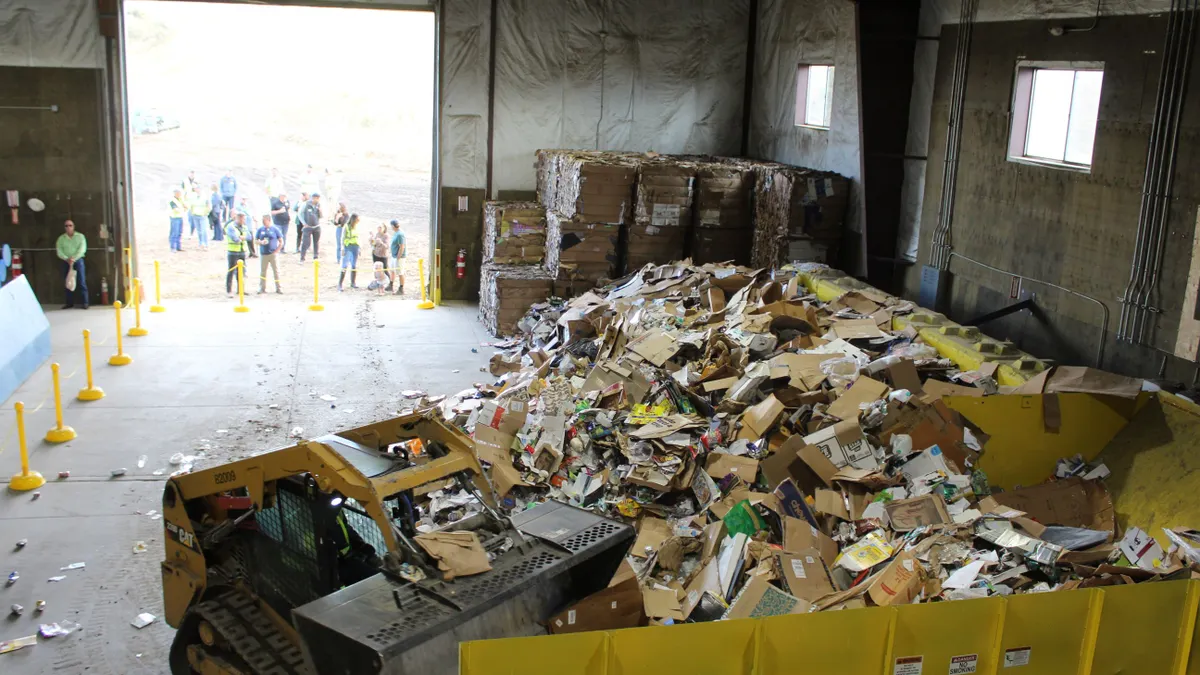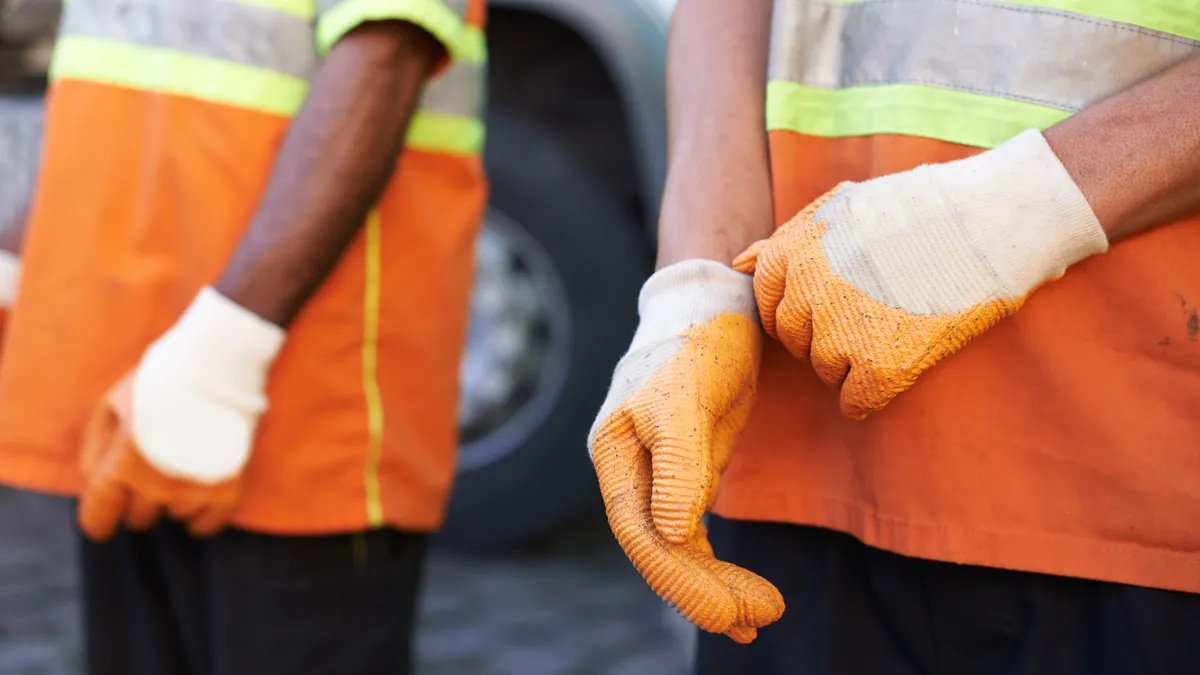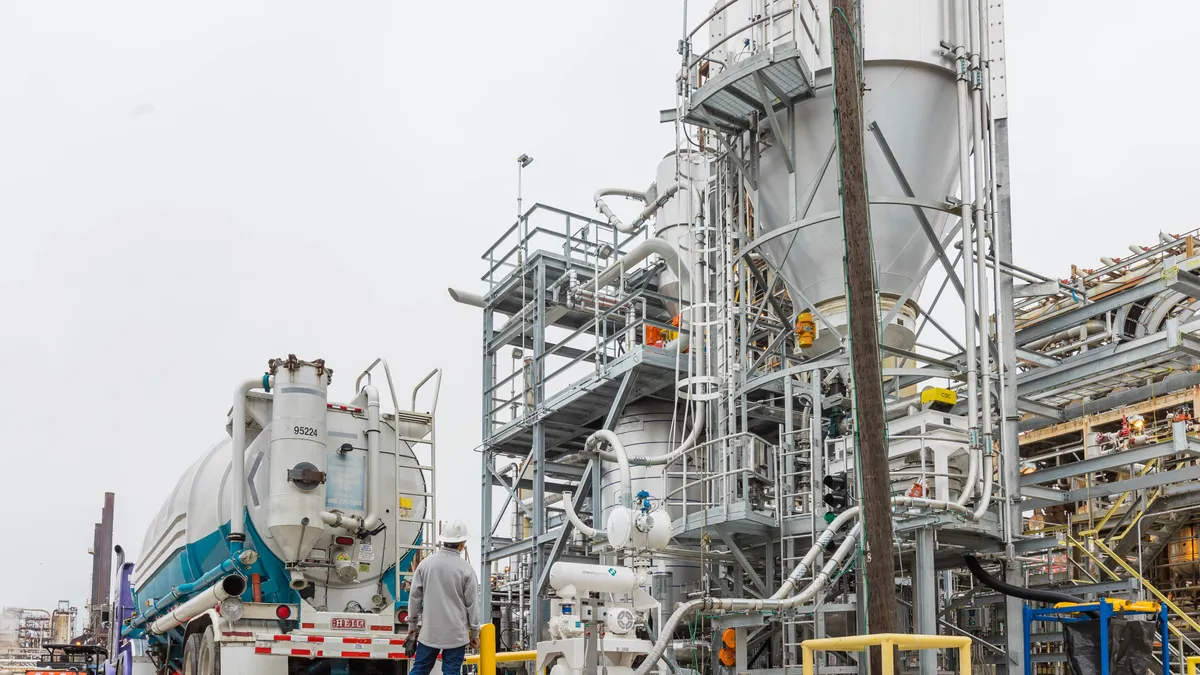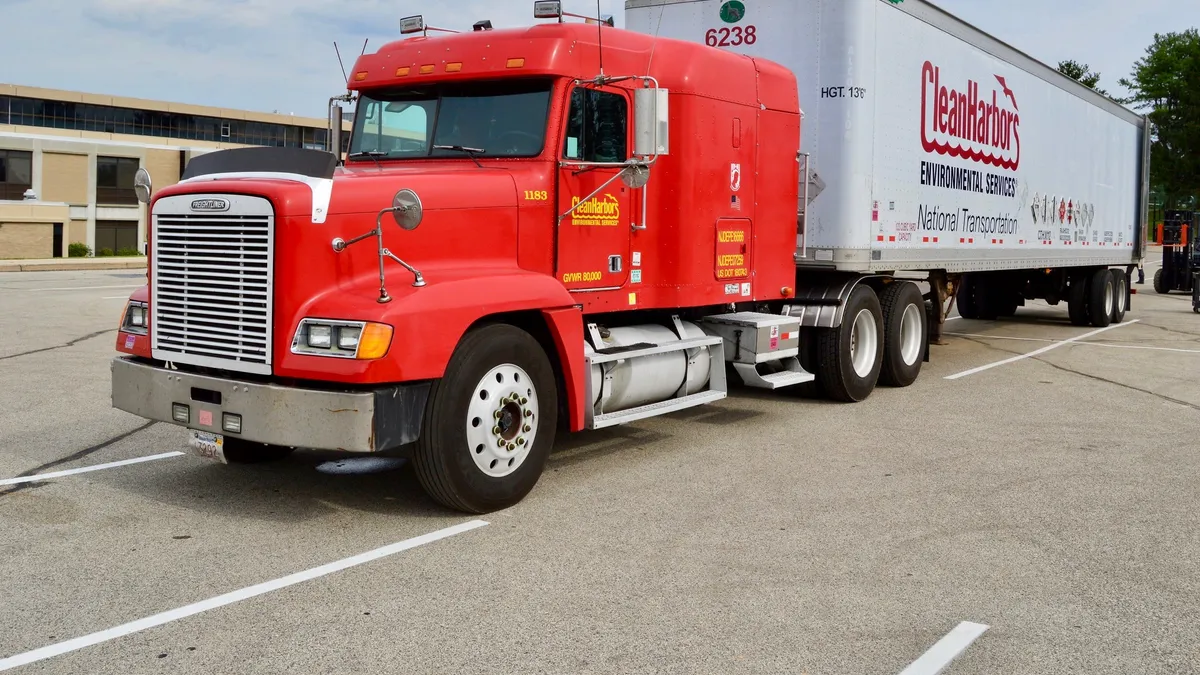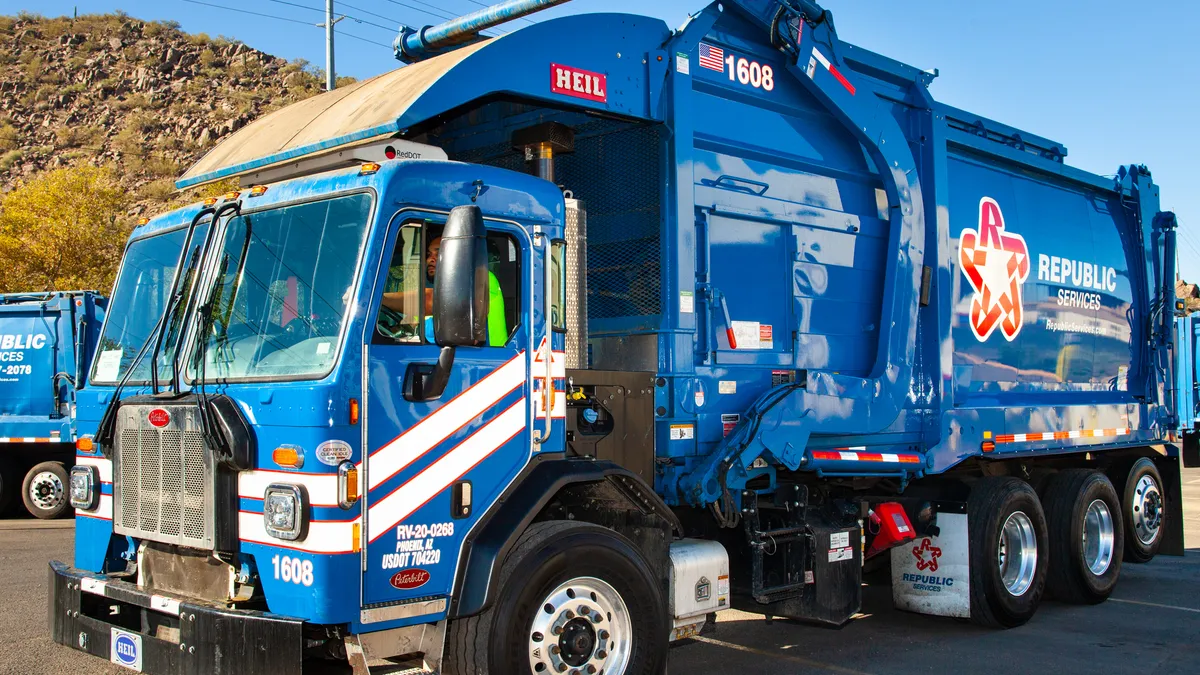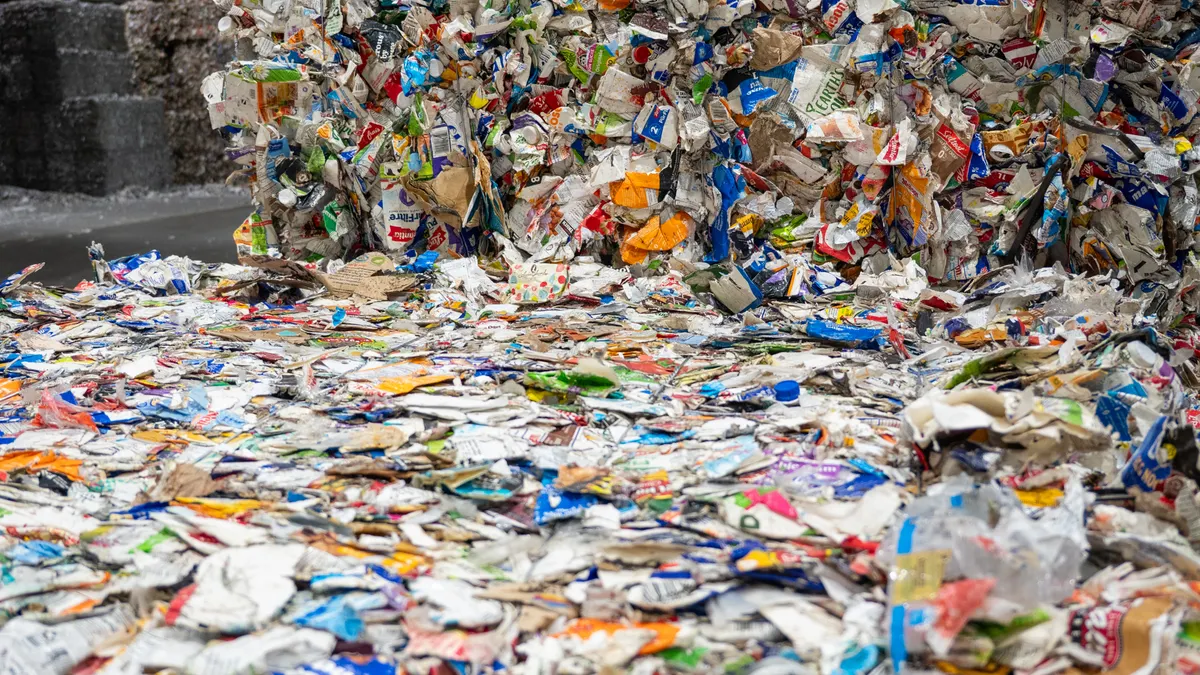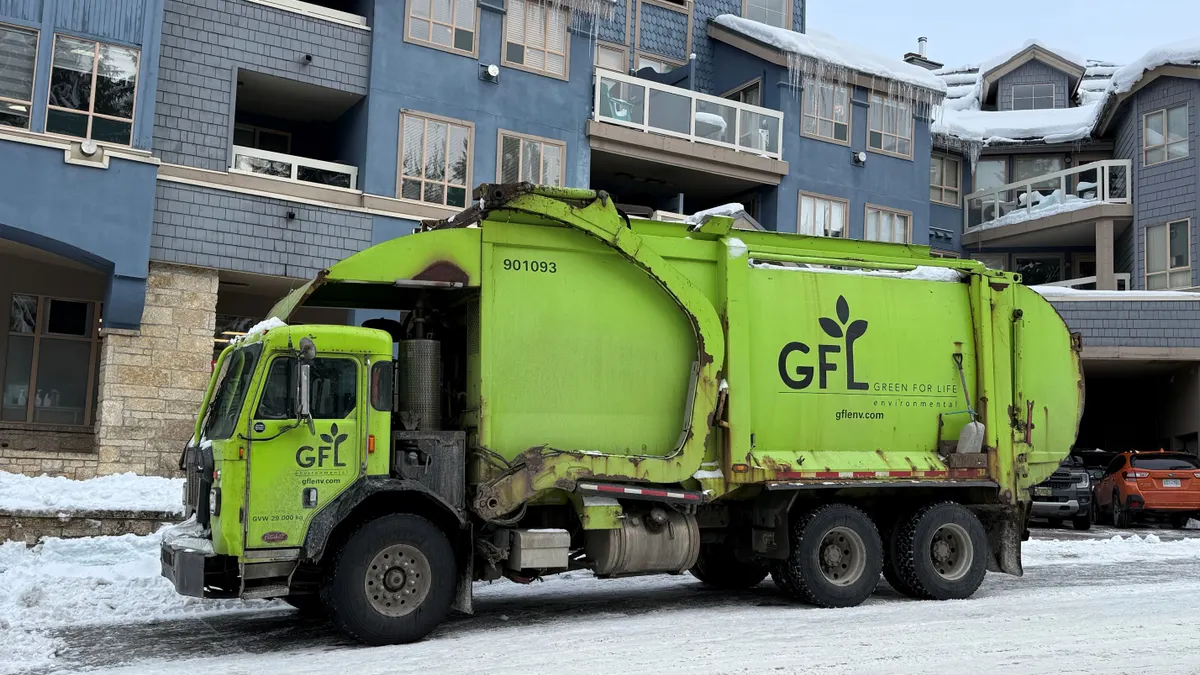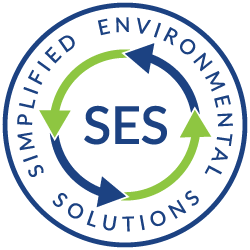Numerous recycling facilities have invested in equipment and tech upgrades this fall, spurred by upcoming extended producer responsibility laws or municipal and corporate sustainability commitments. Here’s a look at some recent announcements across Colorado, Pennsylvania, Oregon and California.
Apex Waste Solutions upgrades Steamboat Springs recycling facility for rural volumes
Colorado-based Apex Waste Solutions has upgraded its Steamboat Springs recycling center to take on a higher volume of material in the rural, mountainous Yampa Valley region.
The state is preparing to implement a new EPR for packaging law, which is expected to help increase recycled materials collection throughout Colorado. That’s in part because the program is designed to fund and reimburse new and improved recycling programs.
Apex, a portfolio company of private equity firm Kinderhook Industries, is particularly expecting higher volumes of recyclables in rural areas that have previously lacked service, including areas neighboring Steamboat Springs.
Upgrades at the recycling facility include a system for sorting cardboard, as well as new equipment to compact hand-sorted plastic and other recyclables. More efficient compaction equipment makes it possible to pack higher volumes of recyclables into trucks bound for MRFs in the Denver metro area, cutting transportation costs in half, said CEO Scott Lukach.
The recycling center is part of a property Apex acquired from Twin Enviro in 2024. Before the upgrades, the facility “could only handle about a third of what we’re handling today, which is challenging from an economic standpoint,” he said. Now, the recycling center handles about 4,500 tons annually, but is capable of processing up to 15,000 tons with the new systems, he said.
Apex partnered with the city of Steamboat Springs and Routt County on the expansion program, he said. The city and county have been particularly important partners in educating residents about the recycling programs, which he said has led to less contamination and will likely lead to more volumes.
“We’re ready to take on a lot of growth,” said Lukach.
Glacier installs AI-enabled sorting equipment at Penn Waste
AI-enabled robotics company Glacier has installed its technology at Penn Waste’s MRF in York County, Pennsylvania.
Penn Waste, a subsidiary of Waste Connections, describes itself as one one of the largest single-stream MRFs in the Northeastern U.S. The sorting system was installed on its fiber line to boost cardboard collection, Glacier said in a news release.
The project was partly funded by Cox Enterprises as part of the conglomerate’s circular economy initiatives. The Penn Waste facility processes about 225 tons of recycling each year from a nearby Cox Automotive wholesale auction site, which provides vehicle sales, reconditioning, and other services.
Glacier says it has doubled the amount of total installed units in the last year. After Penn Waste’s installation, Glacier says it now plays a role in processing recycling for 1 in 10 people in the U.S. Other recent installations took place in Chicago, Detroit, Los Angeles, Phoenix and San Francisco, the company said.
WM opens new MRFs in Pennsylvania and Oregon
WM opened two new AI-powered recycling facilities in September: the Grand Central facility in Pennsylvania and the Portland facility in Oregon.
WM’s $48 million Grand Central recycling facility in Pen Argyl, Pennsylvania, can process up to 120,000 tons of material a year. Optical sorters and volumetric scanners allow equipment to it to collect and sort more types of plastics, including PP yogurt containers it had not previously collected at that location, WM said in a news release.
Meanwhile, WM’s $47 million facility in Portland is able to process up to 38 tons of material per hour, leveraging artificial intelligence and other technologies the company says will more efficiently sort materials, achieve higher quality standards and help advance Oregon’s recycling goals.
WM says the opening of the MRF is timed to help Oregon “accelerate the modernization of the statewide recycling system” under the state’s new extended producer responsibility law, known as the Recycling Modernization Act.
The two new MRFs are part of WM’s ongoing plan to invest more than $1.4 billion in 39 new and upgraded recycling facilities across North America between 2022 and 2026. Altogether, these dozens of sites will add about 2.8 million tons of incremental annual processing capacity by the end of next year.
BLT Enterprises upgrades Fremont MRF with AI automation
Waste management and industrial real estate company BLT Enterprises has invested $10 million in improvements at its recycling and transfer station in Fremont, California.
MRF improvements at the 187,000-square-foot facility include the installation of two robots and five optical sorters. The equipment upgrades will enable BLT to recover an additional 3 million pounds of recyclable material each year, said General Plant Manager Rich Dubiel in a news release.
The optical sorters and robots are expected to be fully operational by the end of 2025.
In addition to new sorting equipment, BLT upgraded its solar power system with more efficient models that provide power to over 65% of the facility. It also upgraded restrooms and common spaces throughout the facility.
“These enhancements will significantly boost recycling recovery, decrease landfill waste, and propel us further towards achieving our climate action objectives,” said Fremont City Manager Karena Shackelford in a statement.
BLT Enterprises secured the financing from City National Bank, with help from the California Pollution Control Financing Authority, it said in a news release.
This story first appeared in the Waste Dive: Recycling newsletter. Sign up for the weekly emails here.



